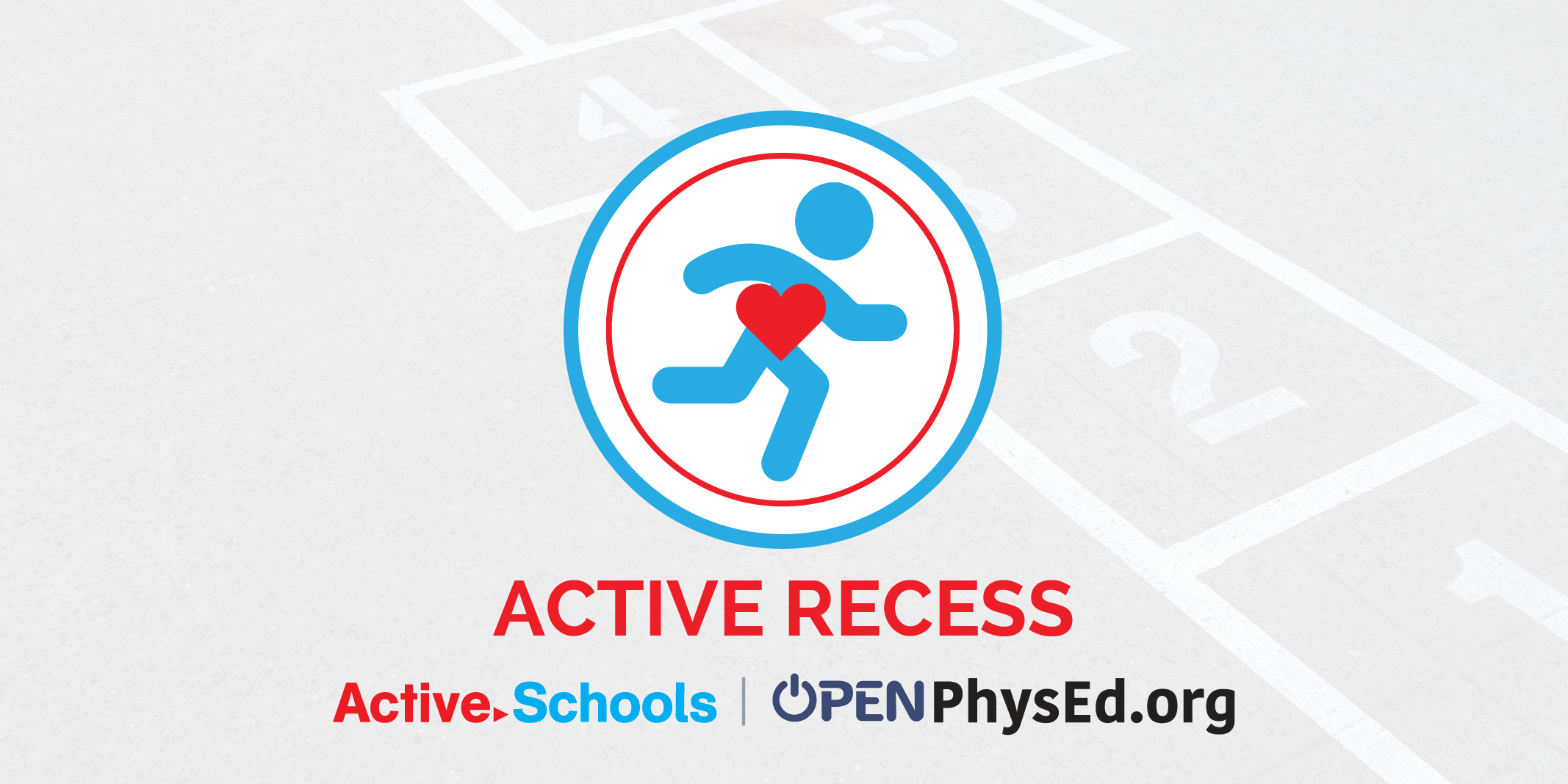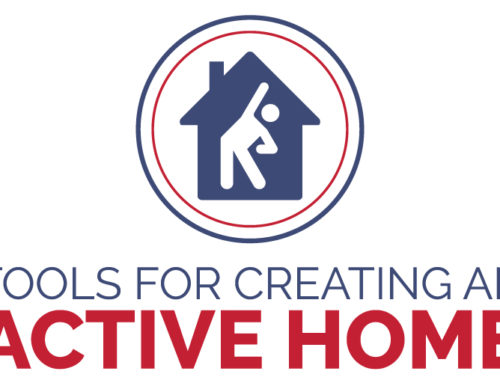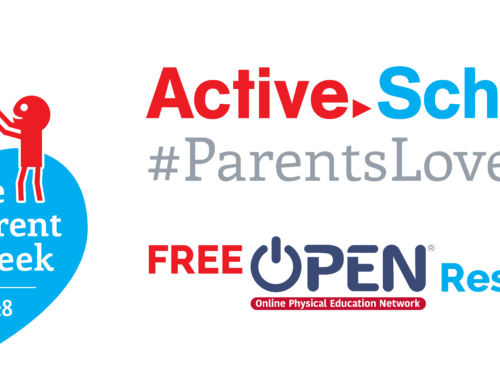Created by: Aaron Hart, Lynn Hefele, Nick Kline, Jason Leach, Mike Morris, Ben Pirillo, Rich Wiles
Special Contributions: Anne Kubitsky, Joanna Faerber, Deedi Brown
Special Thank You: Kids Heart Challenge, Eat Move Grow, Active Schools
Design: Jennifer Truong, Aaron Hart
According to the American Academy of Pediatrics, recess is a crucial and necessary component of a child’s development and, as such, it should not be withheld for punitive or academic reasons. (Pediatrics 2013; 131: 183-188)
This article gives information and citations to support the cognitive and academic benefits of recess, as well as the social and emotional benefits. At OPEN, we understand the role that recess also plays in the development of physical literacy and fitness. With all of the evidence to support the importance or Recess for all children, we’ve created Active Recess to provide accessible programming materials for all schools.
Recess Makeover with Look for the Good® and Kids Heart Challenge® [READ THE ARTICLE]
Module Documents
- Complete Recess Activity Packet:
- Recess Rules Poster: [PDF]
OPEN Priority Outcomes: Values Physical Activity
Social Interaction [K-12]
- (K) Discusses the enjoyment of playing with family and friends.
- (1) Discusses the reasons for participating in physical activity with friends.
- (2) Discusses ways to encourage others to be physically activity with friends.
- (3) Describes the positive social interactions that come when engaged with others in physical activity.
- (4) Describes and compares positive social interactions when engaged in partner, small-group, and large-group physical activities.
- (5) Describes the social benefits gained from participating in physical activity.
- (6) Demonstrates respect for self and others in activities and games by following the rules, encouraging others, and playing within the spirit of the game or activity.
- (7) Demonstrates the importance of social interaction by helping and encouraging others, avoiding trash talk, and providing support to classmates.
- (8) Demonstrates respect for self by asking for help and helping others in various physical activities.
- (HS) Identifies and evaluates the opportunity for social interaction and social support in self-selected physical activities.
CASEL CORE SEL COMPETENCIES
- Self-Awareness: Self Efficacy
- Self-Management: Impulse Control
- Relationship Skills: Cooperate, Negotiate Conflict, Teamwork, Communication
- Responsible Decision-Making: Ethical Responsibility
- Social Awareness: Respect for Others



